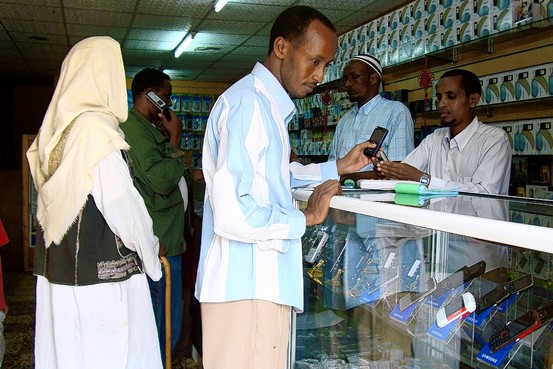Enact Communications Act for economic growth, urges World Bank

LACK OF A LEGAL framework for both the Information Communication Technology, ICT and financial sectors is a sources of risk potentially cramping the Somali economy, the World Bank has warned.
Acknowledging the exponential growth in both sectors in Somalia, the global lender says there is need for a strong regulatory framework in the country to ensure equitable distribution in market and promote a healthy competition while enabling a robust investment environment.
Tipping point
“The ICT sector, particularly mobile communications could soon reach a tipping point where market competition, equitable distribution and demand-driven efficiency can grow exponentially and transform operating environments for both government and individual citizens,” the bank said.
The recommendation further notes the ICT sector is still evolving, with de facto consolidation around larger companies, resulting from mergers and alliances but warns that despite consumer benefits as a result, the future licensing framework will need to take into account competition policy considerations and enforce interconnection.
Monopoly
Critical areas including remittances, mobile banking and mobile-money services and mobile services – are influenced and, in some cases, controlled by large companies in Somalia. Hormuud Telecom commands almost some form of monopoly in mobile telephony and local electronic money transactions.
The World Bank says the federal parliament and government must fast track the Communications Bill which received a first reading in Parliament December last year.
Fibre optic cable
West Indian Ocean Cable Consortium (WIOCC) deployed undersea fiber-optic EASSy cable to Mogadishu in 2014, which was financed by WIOCC’s shareholders, including the World Bank’s private sector arm, International Finance Corporation and run by local Somali shareholder Dalkom.
Parliament is today debating the telecommunications bills which is critical to regulating telecommunications sector and electronic financial transactions in the country. The bill is also expected to address international money transfers including remittances which are key to Somalia’s economy.
IMF assessment
The International Monetary Fund, IMF this week released its first assessment of Somali’s economy noting that economic growth is expected to accelerate to 3.4 percent next year and 4.3 percent in 2017, compared with 2.7 percent this year, the IMF said.
“Expansion is set to rebound in the medium term on increased foreign investment from Somalia’s diaspora into sectors such as construction, services and telecommunications,” said Rogerio Zandamela, the IMF mission chief for Somalia.
International charity, Oxfam estimates Somalis around the world send approximately $1.3 billion to Somalia annually.